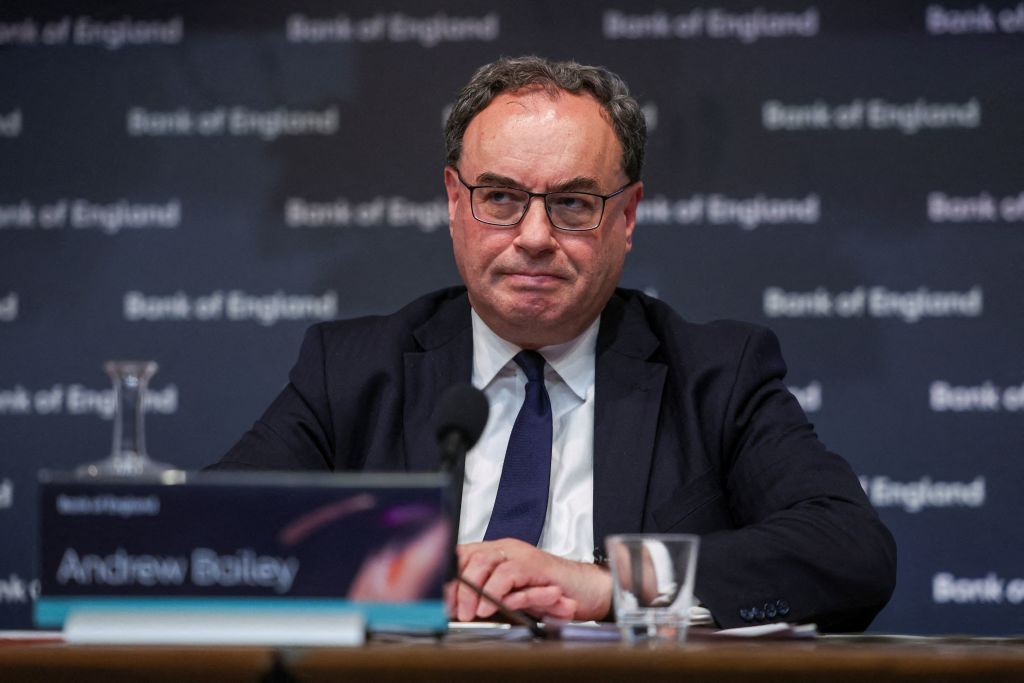As Kate Andrews argues here, the Bank of England were never going to cut interest rates during an election campaign for fear of being accused of favouring one side or the other. That ruled out a rate cut in June, while in July there was no meeting of the Monetary Policy Committee. But are those five members who voted for a quarter-point cut today really confident that they have not opened themselves to charges of bias, by cutting rates at the earliest opportunity after the election of a Labour government?
For months, the MPC was telling us that it was too early for a rate cut – in spite of rapidly falling inflation – because wage growth was too high. What has happened since May suddenly to make it safe to cut rates? Wage growth has fallen back a little but remains stubbornly high at 5.7 per cent. Moreover, this week Rachel Reeves has added to wage pressures by announcing pay rises for teachers and other public sector workers of 5.5 per cent – and 22 per cent in the case of junior doctors. That is hardly going to abate wage growth as unions bid up pay demands by comparing their members with other groups of workers. Moreover, the Bank has actually increased its forecast for inflation for the rest of this year – it now expects the Consumer Prices Index to rise from its current 2 per cent and peak at 2.75 per cent, up from the peak of 2.5 per cent forecast in its monetary report in May.
This is a somewhat strange recipe for suddenly cutting rates when the MPC had held them steady for so long. I am sure that MPC members are trying to act purely out of economic considerations, but the perception that they may be swayed by politics is not helped by the fact that Rachel Reeves is, of course, a Bank of England insider. Her first job after university was at the bank. Moreover, former Bank of England governor Mark Carney endorsed Reeves at last year’s Labour party conference. He said said: ‘Rachel Reeves is a serious economist. She began her career at the Bank of England, so she understands the big picture’. Carney may no longer be on the MPC but his words do convey a remarkable degree of groupthink: she’s one of us, so she must be right.
Making the Bank of England independent was one of Gordon Brown’s first actions in office, and one that has been praised across the political spectrum. Prior to that, setting the Bank of England’s base rate was a political decision by the Chancellor, and there was an obvious risk that rates would be set too low, especially in advance of an election, to curry favour with voters. But the MPC’s decision to hold off rate cuts earlier this year, when the Conservative government was suffering electorally from the high cost of living, and then to start cutting them as soon as Labour had won the election is bound to raise questions as to how independent it really is.








Comments